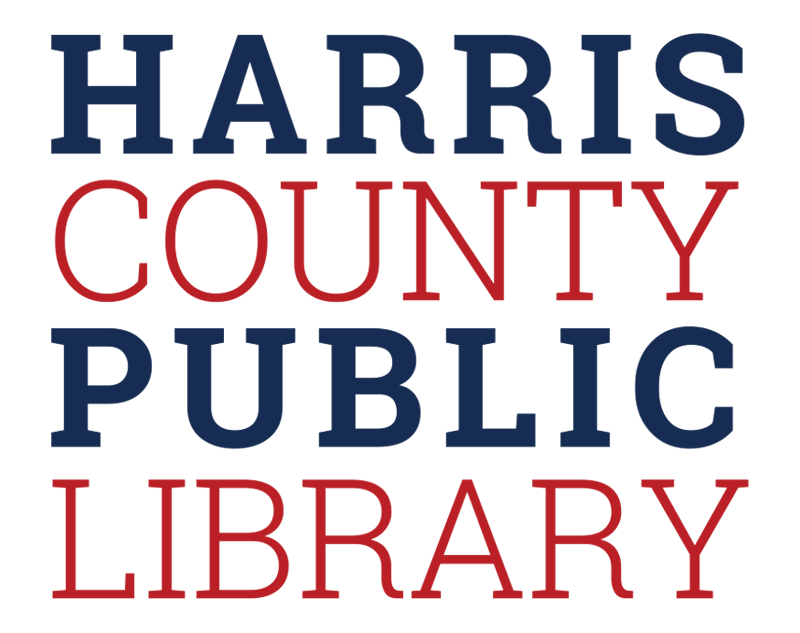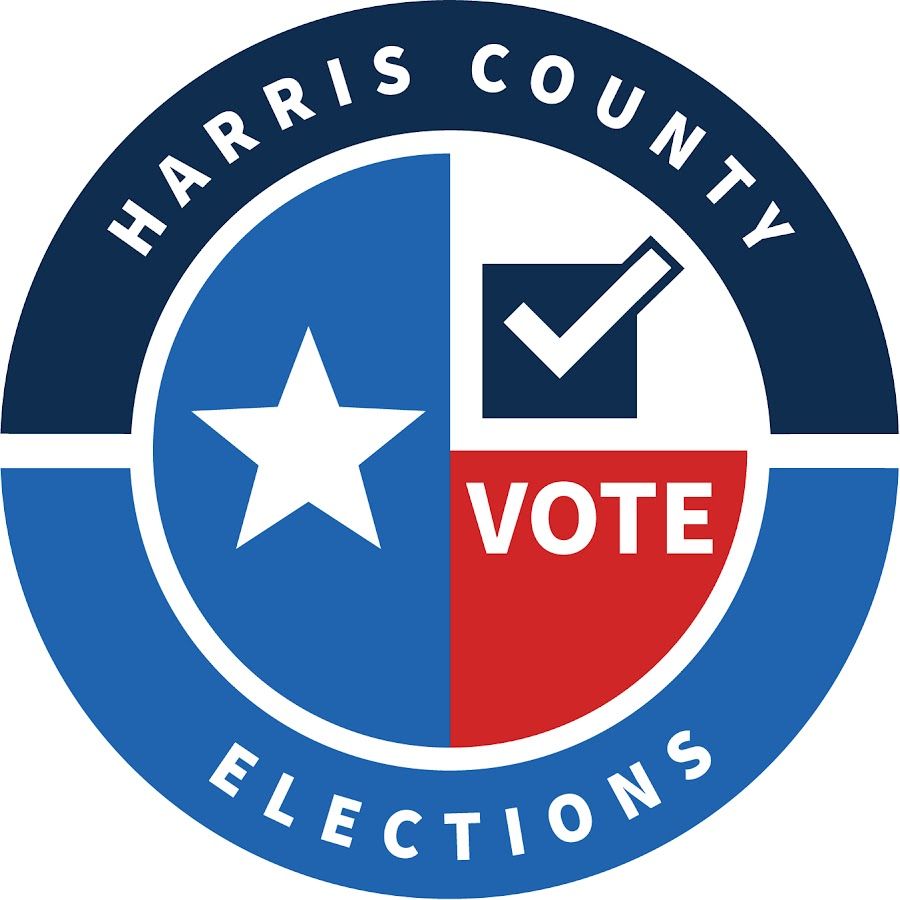Texas Constitutional Amendments
RELIABLE, NON-PARTISAN ELECTION INFORMATION
HOUSTON VOTERS GUIDE
The current Texas Constitution was written in 1876 and has been amended nearly five-hundred times. Compare that to the United States Constitution, which has only twenty-seven amendments. Why does the Texas Constitution have so many amendments? Rules for how state and local governments should run are very specific in the Texas Constitution, unlike in the U.S. Constitution. Therefore our state lawmakers often have little freedom to make changes to laws without amending the state constitution. The proposed changes must pass both houses of the legislature by a 2/3 vote, and then the voters must approve all changes.
All potential amendments that appear on your ballot must originate in the legislature. The Texas Constitution cannot be amended by citizen-led ballot initiatives, referendums, or petitions, as in some other states. We vote on a slate of amendments in the fall of odd-numbered years, following the spring legislative session. Topics vary, and can cover a wide range of topics, and some may affect only a few counties.
Voting on amendments fulfills your right and duty as a Texas citizen. This approval or disapproval of changes to our constitution gives you a direct voice in our state government.
"The constitutional amendment protecting the right to engage in farming, ranching, timber production, horticulture, and wildlife management. “
PROPOSITION 1 (HJR 126)
EXPLANATION
ARGUMENTS FOR PROPOSITION 1
ARGUMENTS AGAINST PROPOSITION 1
- As the Texas population grows and the demand for food increases, it is important to prevent cities from overregulating agricultural production.
- The proposed amendment ensures that "generally accepted" farming, timber production and wildlife management practices are allowed on properties within counties and cities.
- Proposition 1 would still allow the state legislature to authorize state agencies or local governments to regulate farming practices that are necessary to protect the public from imminent danger.
- Proposition 1 limits the power of local governments to protect the health of their communities by setting rules covering farming practices that impact animal welfare, food safety, drinking water protection, animal waste, odors and pesticide runoff.
- The proposed amendment allows farms, including large, industrial farms, to operate with less accountability to the local community.
- Counties and cities must follow the definition of "acceptable agriculture practices" as defined by Texas A&M Agrilife Extension, whose interpretation may be too broad for urban areas.
Proposition 1 would establish a constitutional right for people and businesses to farm, ranch, produce timber, or manage wildlife on property they own or lease. The state of Texas could still allow state agencies or local governments to regulate these practices:
- If there is clear and convincing evidence that the regulation is needed to protect public health from imminent danger;
- To prevent danger to animal health or crop production; or
- To conserve the state's natural resources
"The constitutional amendment authorizing a local option exemption from ad valorem taxation by a county or municipality of all or part of the appraised value of real property used to operate a child-care facility “
PROPOSITION 2 (SJR 64)
EXPLANATION
ARGUMENTS FOR PROPOSITION 2
ARGUMENTS AGAINST PROPOSITION 2
- Lower property taxes would reduce costs for child care centers, so more can remain open and more can be built.
- Having a larger number of child care centers may lower costs for working parents, allowing them to stay in the workforce.
- Child care centers may use the savings from lower property taxes to improve wages and benefits for staff, helping them retain workers.
- Proposition 2 would lower property taxes for one type of business, which could increase the tax burden for other property owners.
- Lower property taxes would reduce taxes raised to fund counties and cities.
- The benefits of this tax break may not flow to parents and child care workers.
Proposition 2 would allow counties and cities to lower property taxes on some child care centers. This benefit would apply to child care centers:
- That are owned or rented; and
- With at least 20% of children enrolled who receive subsidized child-care services.
''The constitutional amendment prohibiting the imposition of an individual wealth or net worth tax, including a tax on the difference between the assets and liabilities of an individual or family."
PROPOSITION 3 (HJR 132)
EXPLANATION
ARGUMENTS FOR PROPOSITION 3
ARGUMENTS AGAINST PROPOSITION 3
- Texans should not be penalized for creating wealth and starting businesses which help the Texas economy grow.
- This tax would be difficult to administer and enforce due to the complexity of determining the fair value of a person's assets.
- Some taxpayers may have significant assets, but low cash flow. For example, farmers or retired persons may have valuable property, but paying a wealth tax from their earnings may be a struggle.
- The state needs to maintain the option of a wealth tax that would shift the tax burden to those able to afford to pay more, helping to address wealth inequality.
- Proposition 3 would limit options for the state to fund its needs in the future, such as for schools, infrastructure, mental and physical healthcare, and public safety.
- This proposed amendment addresses a tax that is not being considered by the state legislature.
Proposition 3 would amend the Texas Constitution to prohibit a wealth tax.
A wealth or net worth tax is a tax on the value of a person's assets (what a person owns) less liabilities (what they owe). Assets may include cash, bank deposits, shares of stock, equipment, real estate, pension plans, money funds and trusts.
"The constitutional amendment to authorize the legislature to establish a temporary limit on the maximum appraised value of real property other than a residence homestead for ad valorem tax purposes; to increase the amount of the exemption from ad valorem taxation by a school district applicable to residence homesteads from $40,000 to $100,000; to adjust the amount of the limitation on school district ad valorem taxes imposed on the residence homesteads of the elderly or disabled to reflect increases in certain exemption amounts; to except certain appropriations to pay for ad valorem tax relief from the constitutional limitation on the rate of growth of appropriations; and to authorize the legislature to provide for a four-year term of office for a member of the board of directors of certain appraisal districts.”
PROPOSITION 4 (HJR 2 – Second Special Session)
EXPLANATION
ARGUMENTS FOR PROPOSITION 4
ARGUMENTS AGAINST PROPOSITION 4
- Proponents say these property tax cuts would save Texas homeowners an average of $1,300 per year in property taxes, with additional cuts for property owners who are seniors and those with disabilities.
- Over $12 billion will be sent from the state's general revenue funds to school districts so that school districts can lower tax rates. This shifts the burden of school funding away from property taxes to other sources. Tax rate reductions passed by the Legislature limit how much is shifted to businesses.
- The owners of moderately priced homes would get the most benefit from the increase in the homestead exemption.
- The property tax reductions give no relief for renters, who make up more than ½ of Texas households, many of whom are struggling with high rents.
- Opponents say the property tax changes approved do not include any new money for schools or teacher pay raises, even though Texas is ranked near the bottom in per-student spending for education.
- Shifting away from property taxes to fund our public schools could result in higher sales taxes and higher taxes on businesses.
Proposition 4 would amend the Texas Constitution to allow tax cuts that were approved by the Legislature in the 2023 special session to take effect this year. Proposition 4 allows the legislature to reduce property taxes as follows:
- The homestead exemption would increase from $40,000 to $100,000. The homestead exemption is the amount of the appraised value of a primary residence that is not subject to taxes by the local school district.
- The increase in the appraised value for a non-homestead property (such as a business property or second home) cannot be more than 20% over the prior year's appraised value.
- Only non-homestead properties with value of $5 million or less qualify at this time.
- This non-homestead property tax limit expires December 31, 2026.
- The Legislature has approved sending money to school districts to replace lost tax revenues. Proposition 4 would allow this money to be sent without counting toward spending limits in the constitution.
- Currently, members of local appraisal boards are all appointed. Proposition 4 allows the Legislature to require that in counties with a population of 75,000 or more, three of nine members of a board be elected.
"The constitutional amendment relating to the Texas University Fund, which provides funding to certain institutions of higher education to achieve national prominence as major research universities and drive the state economy."
PROPOSITION 5 (HJR 3)
EXPLANATION
ARGUMENTS FOR PROPOSITION 5
ARGUMENTS AGAINST PROPOSITION 5
- Proposition 5 helps higher education in Texas by providing stable funding for research in the four universities supported by the Texas University Fund.
- Research at Texas public universities helps drive the Texas economy.
- Both funds provide a path for more universities to become eligible for research grants.
- Using standardized national performance metrics will allow more universities to qualify for research grant funding.
- Proposition 5 continues the unequal treatment of public universities in Texas.
- Proposition 5 would provide stable research funding for only four additional public universities at this time (those funded by the Texas University Fund).
- The funding through the National Research Support Fund is not stable and would still require legislative approval every two years.
- No additional universities will be added to the Texas University Fund unless the Legislature adds more money.
Proposition 5 would provide money for research grants for Texas' public universities.
Currently, the University of Texas and Texas A&M University are the only nationally recognized research universities in Texas and therefore receive substantial funding for research.
In 2009, Texas set up the National Research University Fund to provide research grants at other public universities. Currently, eight Texas universities qualify for research grants from this fund.
Proposition 5 proposes to replace the National Research University Fund with two new funds:
- Texas University Fund would be created to support research grants at Texas State University, Texas Tech University, the University of Houston, and the University of North Texas. The Legislature would provide $4 billion of initial funding for the Texas University Fund. The Legislature may provide $100 million per year of the interest and investment income from the Economic Stabilization Fund (also known as the Rainy Day Fund) to support this fund. The Legislature can add eligible public universities to the fund only if additional money is provided.
- National Research Support Fund would be created to support the University of Texas Arlington, University of Texas Dallas, University of Texas El Paso, and University of Texas San Antonio. Funding would have to be approved every two years by the Texas Legislature.
Also, Proposition 5 standardizes performance metrics to evaluate whether a university program qualifies for a grant.
"The constitutional amendment creating the Texas water fund to assist in financing water projects in this state."
PROPOSITION 6 (SJR 75)
EXPLANATION
ARGUMENTS FOR PROPOSITION 6
ARGUMENTS AGAINST PROPOSITION 6
- Proposition 6 will provide funding to help communities plan and implement projects to obtain new water supply sources to ensure future water availability for Texans.
- There is a great need for projects to replace or repair aging pipes which the state estimates leak billions of gallons of water each year.
- Also, water and wastewater treatment plants in many communities need upgrades and/or replacements.
- The amount the Legislature has agreed to put into the fund is not enough to pay for the number of projects needed to secure Texas' future water supply needs.
- Proposition 6 would allow funds to be taken from state revenues to fund local water projects.
Proposition 6 would create the Texas water fund. This fund would provide grants and low interest loans for water projects across Texas. The fund is being set up to address concerns about not having enough water to meet the needs of Texas' rapidly growing population.
The Texas Water Development Board will administer the fund. This Board, whose members are appointed by the governor, is responsible for meeting the state's water needs, so that Texans have access to enough clean and affordable water.
"The constitutional amendment providing for the creation of the Texas energy fund to support the construction, maintenance, modernization, and operation of electric generating facilities.“
PROPOSITION 7 (SJR 93)
EXPLANATION
ARGUMENTS FOR PROPOSITION 7
ARGUMENTS AGAINST PROPOSITION 7
- Additional state funding is needed to increase the reliability of the state's electric market, especially for power that can be quickly provided during extreme weather when demand is high.
- The money loaned or granted to build the electric generating plants are from the state's budget surplus funds, so electricity customers will not be paying for these plants.
- If the plants are completed by June 2029, the builders receive a bonus under the program. This ensures that extra energy generation will be added to the electric grid soon.
- The Texas energy fund would primarily fund natural gas-powered electric plants. These plants may be more expensive and harmful to the environment than other more cost-effective and clean solutions to make the electric grid more reliable.
- Solar and wind projects are not eligible for loans or grants from this fund. They currently generate about 39% of Texas electricity and have reduced electricity costs in Texas.
- Natural gas-powered electric plants were among the power sources that failed during the 2021 winter storm. Despite this, they would be subsidized by the Texas energy fund if this proposition passes.
Proposition 7 would allow the creation of the Texas energy fund. Money put in the fund by the Texas Legislature would be used by the Public Utility Commission to provide low-rate loans or grants to companies to build or upgrade electric generating plants in Texas.
"The constitutional amendment creating the broadband infrastructure fund to expand high-speed broadband access and assist in the financing of connectivity projects.”
PROPOSITION 8 (HJR 125)
EXPLANATION
ARGUMENTS FOR PROPOSITION 8
ARGUMENTS AGAINST PROPOSITION 8
- Proposition 8 would expand reliable high speed internet to Texans all across the state, including in areas where private companies do not currently operate.
- Improved access to high speed internet would result in better productivity and efficiency in agriculture and energy, two of Texas' most important industries.
- This fund would enable Texas to use state funds to take advantage of available federal dollars to expand internet availability for more Texans.
- Funding high speed internet expansion is not the responsibility of the government. Private companies have already provided most Texans with access to high speed internet.
- Proposition 8 does not prioritize lower income communities for high speed internet development.
- The money in the fund is not enough to provide high speed internet to all Texans.
Access to high speed internet is now essential for employment, healthcare, education and government, but is not evenly available throughout Texas, especially in rural areas.
Proposition 8 would allow Texas to create a $5 billion fund to expand high speed internet throughout Texas. Money in the fund, along with money from the federal government broadband program and other resources, would provide grants and other support for investments in high speed internet projects. The fund would end in ten years.
"The constitutional amendment authorizing the 88th Legislature to provide a cost-of-living adjustment to certain annuitants of the Teacher Retirement System of Texas.”
PROPOSITION 9 (HJR 2)
EXPLANATION
ARGUMENTS FOR PROPOSITION 9
ARGUMENTS AGAINST PROPOSITION 9
- Retired teachers in Texas do not have a cost-of-living adjustment built into their retirement benefits, and have not received a cost-of-living adjustment in many years. Because of this, many retired teachers have difficulty covering the higher cost of living. This adjustment would help retired teachers and their survivors pay their bills.
- The higher payments to retirees would increase their spending, and therefore help local communities across Texas.
- The increased benefits will be funded from the current budget surplus, leaving the Teachers Retirement System pension fund financially sound.
- The cost-of-living adjustments proposed are not enough to offset the impact of high inflation on retirees.
- The higher payments to retired teachers do not address the current teacher shortage.
In 2023, the Texas Legislature approved cost-of-living adjustments and a one-time extra payment to retired teachers or their survivors who currently receive retirement or death benefits from the Teachers Retirement System of Texas. The one-time extra payment was paid in September 2023. The cost-of-living adjustments would start January 2024.
The total cost of the one-time extra payments and the cost-of-living adjustments is about $5 billion. This amount will be transferred from the state's general funds to the Teachers Retirement System so the teachers' pension fund will remain financially sound.
Proposition 9 is required so the amount being transferred for the cost-of-living adjustment does not exceed the Texas Constitution's limit on state spending.
''The constitutional amendment to authorize the legislature to exempt from ad valorem taxation equipment or inventory held by a manufacturer of medical or biomedical products to protect the Texas healthcare network and strengthen our medical supply chain."
PROPOSITION 10 (SJR 87)
EXPLANATION
ARGUMENTS FOR PROPOSITION 10
ARGUMENTS AGAINST PROPOSITION 10
- Removing property taxes on biomedical equipment and inventory may encourage more biomedical companies to move to Texas, creating high-paying jobs.
- Removing property taxes on biomedical equipment and inventory could strengthen our medical supply chain and may protect the Texas healthcare network.
- The COVID pandemic exposed the risk of having key medical equipment manufactured outside of the country, showing the importance of supporting local biomedical manufacturers.
- Because Texas does not have an income tax, eliminating property taxes on biomedical equipment and inventory will reduce funds available for local school districts and local government services.
- The burden of the tax loss will fall more heavily on communities with biomedical manufacturers.
- Reducing property taxes for one industry places more tax burden on other businesses and individuals to support their government and public schools.
Proposition 10 would remove property taxes on equipment or inventory belonging to manufacturers of medical or biomedical products. Texas is one of only a few states that applies a property tax on the equipment and inventory of medical and biomedical companies. In Texas, property taxes pay for local government services such as police, firefighters, libraries, and public education. Property tax on other property of medical and biomedical companies will remain.
"The constitutional amendment authorizing the legislature to permit conservation and reclamation districts in El Paso County to issue bonds supported by ad valorem taxes to fund the development and maintenance of parks and recreational facilities.”
PROPOSITION 11 (SJR 32)
EXPLANATION
ARGUMENTS FOR PROPOSITION 11
ARGUMENTS AGAINST PROPOSITION 11
- Allowing bonds to be issued for parks and recreation facilities will benefit the health and wellness of El Paso County residents.
- More and improved parks will encourage further economic development and growth for the region.
- If approved by a majority of voters in a district, property taxes would be levied to pay interest and principal on the bond issued. The voters in a district who voted against the issuance of such bonds would still be burdened with additional taxes.
- Land allocated to parks could be more economically productive if left in private hands.
In 2003, the Texas Constitution was amended to give conservation and reclamation districts (such as municipal utility districts, known as "MUDs") in eleven counties across Texas the ability to issue bonds to fund the development and maintenance of parks and recreation facilities. El Paso County was not included in the list of counties, so it currently does not have this ability, resulting in an underfunded parks system across the county.
Proposition 11 would include El Paso County on the list of Texas counties that allow their conservation reclamation districts to issue bonds to develop recreational facilities. These bonds would be supported by property taxes, but could only be authorized if voters of the district approve them.
"The constitutional amendment providing for the abolition of the office of county treasurer in Galveston County."
PROPOSITION 12 (HJR 134)
EXPLANATION
ARGUMENTS FOR PROPOSITION 12
ARGUMENTS AGAINST PROPOSITION 12
- According to the Chief Financial Officer of Galveston County, abolishing the county treasurer's office would save taxpayers in the county $450,000 annually.
- Supporters say that abolishing the office would make the work formerly performed by the treasurer's office more efficient and cost effective.
- Abolishing the county treasurer's office may reduce the risk of misappropriation of funds such as occurred in 2018.
- Much of the estimated taxpayer savings may shift to other departments' costs.
- Removing the office of county treasurer would impact current checks and balances between elected county commissioners, who control the budget, and the elected county treasurer, who makes financial management decisions.
- An elected county treasurer is accountable to voters.
Proposition 12 would eliminate the office of the county treasurer of Galveston County effective January 1, 2024. The members of the Commissioners Court of Galveston County would assign the duties of the treasurer's office to individuals in other county offices (such as, auditors, chief financial officer, county clerk) or would contract the work out to other individuals. Nine other counties in Texas have eliminated the treasurer's office.
The current county treasurer, elected in 2022, ran on a platform to abolish the county treasurer's position. This amendment takes effect if this constitutional amendment is approved by a majority of statewide voters
and
if a majority of Galveston County voters approve abolishing the office in the November 7, 2023 election.
"The constitutional amendment to increase the mandatory age of retirement for state justices and judges.”
PROPOSITION 13 (HJR 107)
EXPLANATION
ARGUMENTS FOR PROPOSITION 13
ARGUMENTS AGAINST PROPOSITION 13
- People are living and working longer, and experienced state judges should be allowed to continue to serve if they are capable and willing.
- Allowing judges to serve longer may result in a more predictable and stable judiciary.
- State judges in Texas are elected. Voters can determine whether a judge deserves to be elected.
- The Judicial Conduct Commission is available to address any issues with a judge's competence between elections.
- The Judicial Conduct Commission may not be able to promptly address issues with older judges who experience cognitive decline and/or lower productivity.
- Extending the age limit will keep the Texas judiciary from reflecting the demographics of the current Texas population.
- Retired state judges are still eligible to serve as visiting judges, so retired state judges can continue to work if they choose.
Currently, the Texas Constitution:
- Requires that a state judge retires at the end of the term in which he or she turns 75.
- Allows the state legislature to set a lower mandatory retirement age, not less than 70.
- Requires a state judge elected to a six-year term to retire by December 31st of their fourth year of the term if they reach the age of 75 during those first four years.
Proposition 13 would:
- Raise the mandatory retirement age for a state judge to 79 (instead of 75).
- Allow the legislature to set a lower age, not less than 75 (instead of 70).
- Repeal the provision regarding mandatory retirement at the end of the fourth year in a six-year term for those judges reaching age 75 during the first four years.
"The constitutional amendment providing for the creation of a centennial parks conservation fund to be used for the creation and improvement of state parks."
PROPOSITION 14 (SJR 74)
EXPLANATION
ARGUMENTS FOR PROPOSITION 14
ARGUMENTS AGAINST PROPOSITION 14
- State parks provide affordable access to outdoor recreation such as hiking, hunting, fishing and camping.
- State parks protect water resources and safeguard habitat for wildlife.
- State parks provide an economic boost to the outdoor recreation industry and to the rural communities located nearby.
- State parks educate Texans about their heritage by preserving significant cultural and historic sites, an essential legacy to future generations.
- Taxpayer money should not be used to create and maintain more state parks. There are other public needs more pressing than adding to the state park system. Recreation is not a proper role for the government.
- Having more public lands could impose restrictions on private development and limit agricultural and mineral rights.
Proposition 14 directs up to $1 billion from the current budget surplus and other sources to create the centennial parks conservation fund, a dedicated pool of money to buy land for the creation and improvement of state parks. Texas state parks contain diverse wildlife, natural landscapes and important cultural and historical sites. Population growth and loss of land to housing and commercial development, combined with increased demand for outdoor recreation, have led to crowding and some park closures. More than 95% of land in Texas is privately owned and every year land is getting more expensive to buy.









